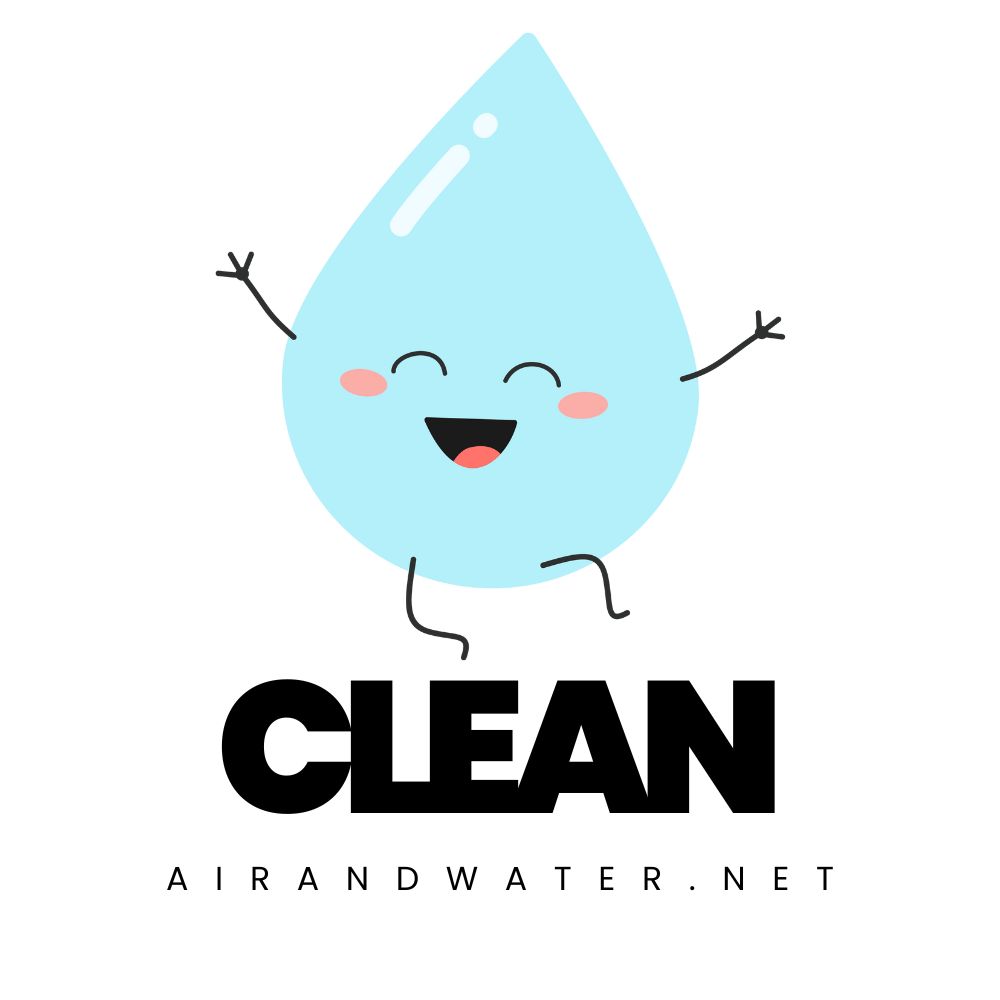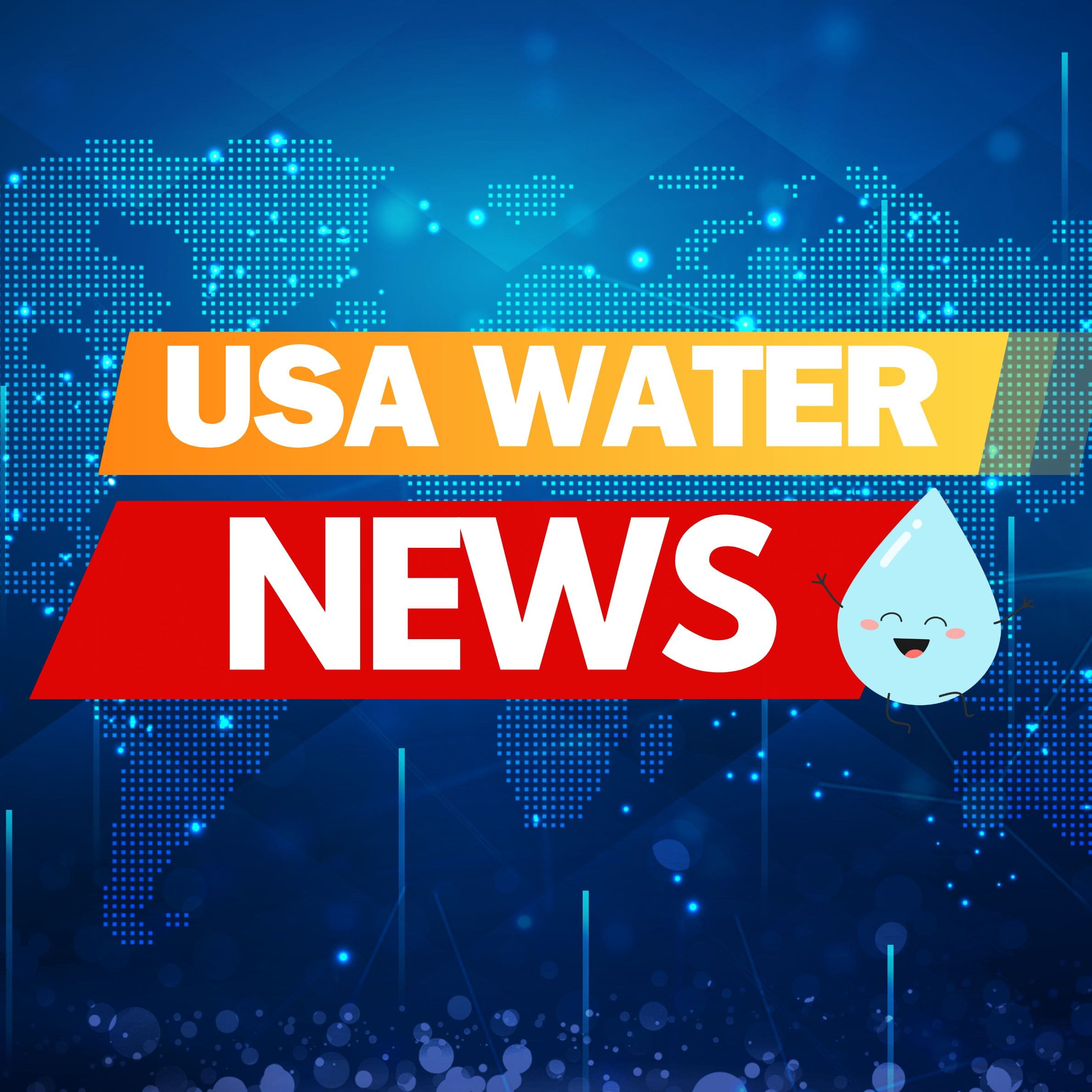Augusta, Georgia Water Quality at a Glance
significant concerns
Is Augusta, Georgia Water Safe to Drink?
Generally Yes, With Caution – Augusta’s water meets federal EPA standards, but the city faces significant PFAS contamination at 1606.7% above EPA minimum reporting levels. Water is sourced from the Savannah River and Cretaceous Aquifer. Additional concerns include disinfection byproducts and hard water throughout the Augusta-Richmond County area.
⚠️ Key Concerns for Augusta, Georgia Residents
- PFAS “Forever Chemicals”: PFOA and PFOS levels above EPA’s new 4 parts per trillion standard in finished water
- Water Sources: Savannah River surface water and Cretaceous Aquifer groundwater both affected by contamination
- Disinfection Byproducts: Chloroform and other trihalomethanes from water treatment process
- Hard Water: Prevalent throughout Augusta-Richmond County area affecting plumbing and appliances
Read the full report below for detailed analysis, city-specific data, and actionable recommendations for Augusta, Georgia residents.
Augusta – Georgia – Water Quality Report 2025: PFAS Testing, Infrastructure Concerns & Safety across your city
Augusta Utilities provides comprehensive water services to approximately 200,000 residents across the Augusta-Richmond County metropolitan area in east-central Georgia. Established as a municipal utility serving Georgia’s second-largest city, the system encompasses over 1,800 miles of water distribution lines, multiple treatment facilities, and advanced infrastructure that delivers an average of 40 million gallons of drinking water daily to the greater Augusta region.
Augusta sources its drinking water from two primary sources: the Savannah River through the Highland Avenue Water Treatment Plant and the Cretaceous Aquifer through groundwater wells that feed Plants No. 1 and No. 2. The Highland Avenue facility draws water from the historic Savannah River via the Augusta Canal, while groundwater wells provide water from the deep aquifer. Augusta’s water consistently meets federal and state quality standards, though the utility faces ongoing challenges including infrastructure modernization, emerging contaminants like PFAS (with levels at 1606.7% above EPA minimum reporting levels), and recovery from natural disasters such as Hurricane Helene in September 2024.
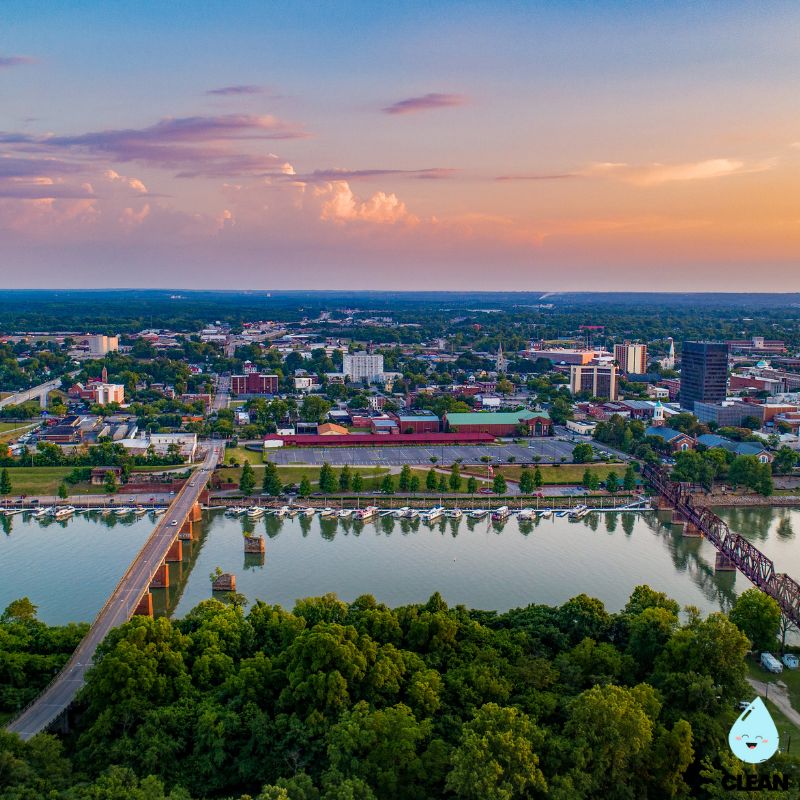
Augusta Water Quality: Current Status (2024-2025)
Latest Testing Results
- Compliance Status: Augusta Utilities maintains full compliance with EPA and Georgia Environmental Protection Division regulations for drinking water quality, conducting comprehensive testing throughout the distribution system.
- Testing Scope: The utility conducts extensive water quality monitoring across both surface water and groundwater sources, including regular testing at treatment facilities and throughout the distribution network.
- Hurricane Helene Response: Following the September 2024 hurricane that temporarily shut down the water system, comprehensive testing confirmed water safety before lifting the boil water advisory in early October 2024.
Water Sources
- Savannah River: Primary surface water source accessed through the historic Augusta Canal, providing water to the Highland Avenue Water Treatment Plant with capacity for treating large volumes of surface water.
- Cretaceous Aquifer: Deep groundwater source accessed through wells, providing naturally filtered groundwater from hundreds of feet below ground in south Augusta.
- Watershed Protection: Participation in the Savannah River Clean Water Fund, a bi-state initiative focused on forest conservation and pollution prevention to protect the 2.8 million acre Savannah River watershed.
Advanced Treatment Technology
- Highland Avenue Plant: Conventional surface water treatment using coagulation, flocculation, sedimentation, filtration, and chlorine disinfection, with lime and fluoride addition for optimal water quality.
- Groundwater Plants: Advanced treatment of deep aquifer water with aeration for volatile organic removal, lime for pH adjustment, fluoride addition, chlorine disinfection, and polymer for corrosion control.
- Smart Monitoring: Implementation of advanced monitoring technology for real-time assessment of vital infrastructure, enhancing system visibility and preventing overflows while ensuring environmental compliance.
Infrastructure Modernization
- Rate Investment Program: A 4.5% annual rate increase beginning January 2025 supports critical infrastructure upgrades, operational improvements, and long-term system reliability investments.
- Hurricane Recovery: Significant infrastructure improvements following Hurricane Helene, including generator backup systems and enhanced debris management protocols to prevent future service disruptions.
- Distribution System Upgrades: Ongoing replacement and modernization of aging water mains and service lines throughout the extensive distribution network to improve reliability and water quality.
Customer Protection Initiatives
Augusta Utilities provides comprehensive customer support through multiple service centers, online bill payment options, and 24/7 emergency response. The utility offers flexible payment methods including bank draft services and maintains transparent communication through annual water quality reports. Following recent challenges including Hurricane Helene and ongoing infrastructure needs, Augusta Utilities demonstrates commitment to reliable service through strategic investments, enhanced monitoring systems, and proactive emergency preparedness to ensure safe, dependable water supply for current and future customers.
Recommendations for Augusta Residents
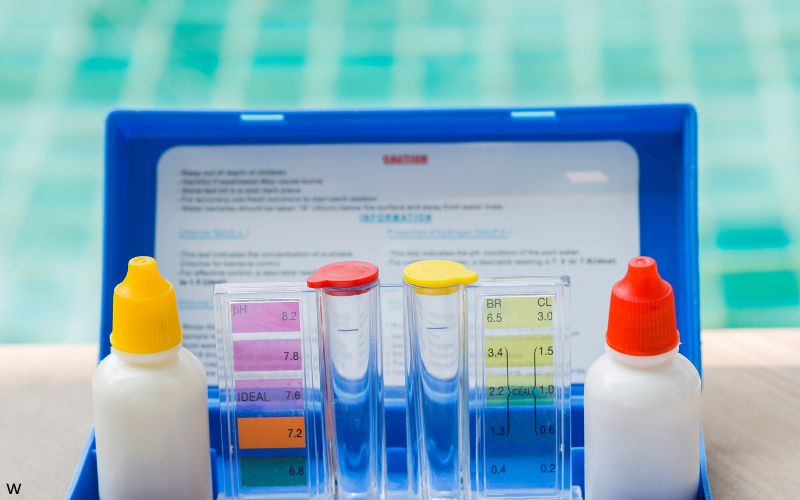
Monitor Water Quality
Contact Augusta Utilities Customer Service at (706) 821-1851 for information about water testing or to request quality reports. Stay informed about any temporary advisories, especially during severe weather events.
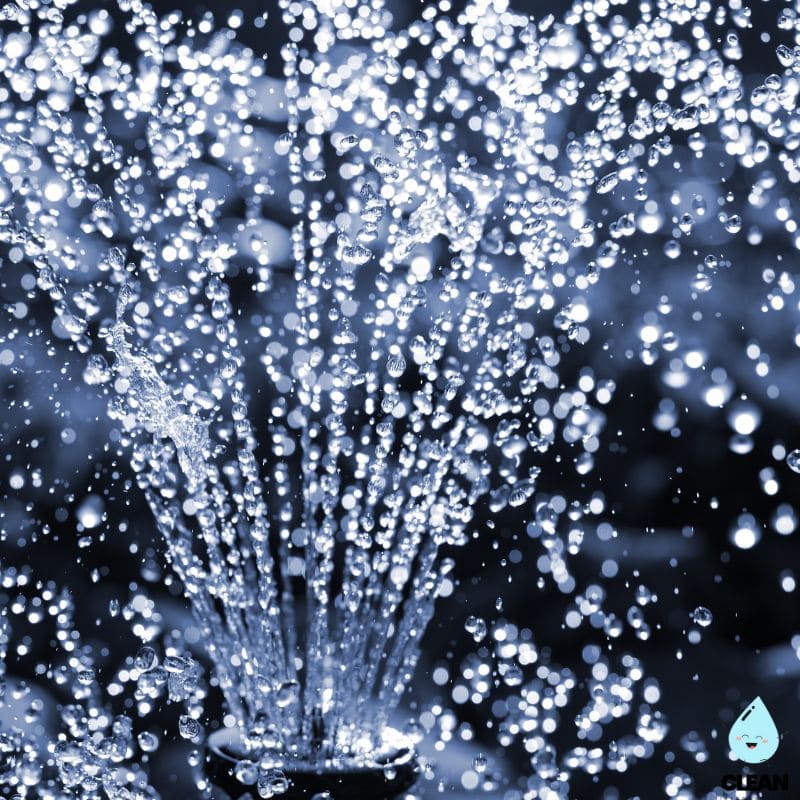
Follow Conservation Guidelines
Observe Georgia’s outdoor watering restrictions: water any day between 4 PM and 10 AM, with no watering 10 AM-4 PM. Follow odd/even address schedules for car washing and power washing activities.

Consider Home Filtration
While Augusta’s water meets safety standards, homes may benefit from NSF-certified filters (Standard 53) for taste improvement and additional protection against disinfection byproducts and emerging contaminants like PFAS, given Augusta’s elevated levels.
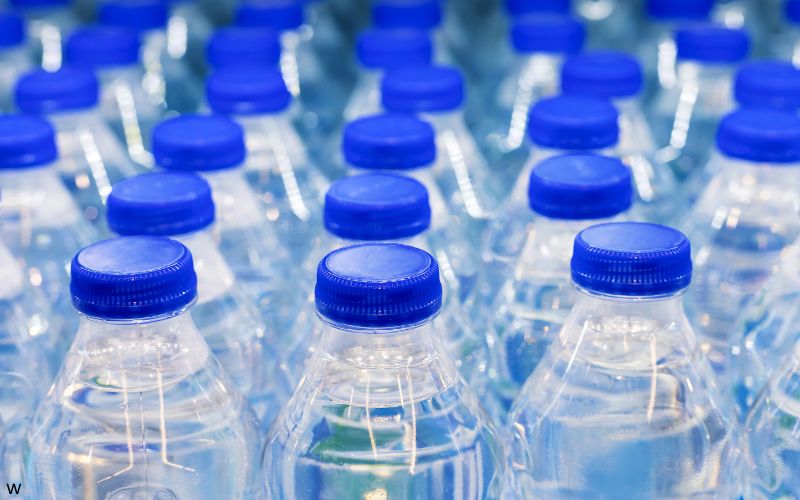
Emergency Preparedness
Keep emergency water supplies on hand during hurricane season. Sign up for city notifications at augustaga.gov to receive alerts about water service disruptions, boil advisories, and system updates.

Report Issues
Contact Augusta Utilities Customer Service at (706) 821-1851 for water quality concerns, service issues, or emergencies. Report water main breaks, pressure problems, or taste and odor issues promptly to help maintain system integrity.
Frequently Asked Questions
Is Augusta’s tap water safe to drink?
Yes, Augusta’s tap water meets all federal and state drinking water standards. The city’s water comes from two sources: the Savannah River through surface water treatment and the Cretaceous Aquifer through deep groundwater wells.
Augusta Utilities conducts comprehensive testing across both treatment systems to ensure water quality. The Highland Avenue Plant treats Savannah River water using conventional multi-barrier treatment, while groundwater from the deep aquifer undergoes advanced treatment with corrosion control. The utility maintains transparent reporting through annual water quality reports and responds quickly to any service disruptions, as demonstrated during the Hurricane Helene recovery in 2024.
What happened during Hurricane Helene?
Hurricane Helene hit Augusta in September 2024, causing significant damage to the water system infrastructure:
1. System shutdown: Debris clogged intake lines and power outages forced the water system offline for 24-48 hours in most areas
2. Boil water advisory: A precautionary advisory was issued when service resumed, then lifted after comprehensive testing confirmed water safety
3. Recovery improvements: The utility has since implemented enhanced backup power systems and improved debris management protocols
The experience has strengthened Augusta’s emergency preparedness and highlighted the importance of infrastructure resilience investments.
Are there PFAS “forever chemicals” in Augusta’s water?
Yes, Augusta has detected PFAS contamination in its water supply, with levels at 1606.7% above EPA minimum reporting levels:
• Current detection: PFOA and PFOS levels exceed the EPA’s new maximum contaminant level of 4 parts per trillion in finished water
• EPA regulations: New federal drinking water standards for PFAS take effect in 2027 for monitoring and 2029 for compliance
• Regional context: Augusta is among Georgia water systems with elevated PFAS levels, particularly affecting the Savannah River watershed
Augusta Utilities will need to implement treatment technologies to meet the new EPA standards by 2029 and continues monitoring through the Georgia EPD program.
Why are water rates increasing?
Augusta implemented a 4.5% rate increase beginning January 2025, with similar annual increases planned to address critical infrastructure needs:
Investment priorities:
• Infrastructure upgrades and modernization of aging water mains and treatment facilities
• Enhanced emergency preparedness and backup systems following Hurricane Helene
• Rising operational costs and compliance with new federal drinking water regulations including PFAS treatment
Customer impact: For the average residential customer using 5,000 gallons monthly, the increase represents approximately $2.23 additional per month. These investments ensure long-term system reliability and continued compliance with water quality standards.
Quality News About Your Water
Get the comprehensive water quality news coverage you need with our dedicated US Water News Service. From coast to coast, we deliver in-depth reporting and expert analysis on PFAS contamination, EPA regulatory changes, infrastructure developments, and emerging water safety issues affecting communities nationwide. While mainstream media only covers the biggest stories, we provide the detailed, ongoing coverage that helps you understand the full scope of America’s water challenges. Whether you’re a concerned citizen, water professional, or community leader, our daily updates and analytical insights keep you informed about the issues that matter most to public health and environmental safety.
Contaminants of Concern

Disinfection Byproducts
Source: Formed when chlorine disinfectants react with naturally occurring organic matter in the Savannah River and groundwater sources; levels may vary seasonally with temperature and organic content
Health Effects: Long-term exposure to elevated levels may increase risk of certain cancers and potentially affect liver, kidney, and central nervous system function
Current Levels: Monitored regularly throughout the distribution system with levels maintained below EPA maximum contaminant levels EPA Limits: 80 ppb for total trihalomethanes (TTHMs) and 60 ppb for haloacetic acids (HAA5)

PFAS Compounds
Source: Per- and polyfluoroalkyl substances from industrial processes, firefighting foams, and consumer products that can enter the Savannah River watershed and potentially groundwater sources
Health Effects: Research suggests potential concerns including impacts on immune system, thyroid function, cholesterol levels, and possible links to certain cancers including kidney and testicular cancer
Current Status: Augusta has detected PFAS at 1606.7% above EPA minimum reporting levels; PFOA and PFOS levels exceed new EPA maximum contaminant levels of 4 parts per trillion EPA Limits: New EPA regulations set limits of 4 parts per trillion for PFOA and PFOS, with compliance required by 2029
Please read – our information
The information presented on cleanairandwater.net is compiled from official water quality reports, trusted news sources, government websites, and public health resources. While we strive for accuracy and thoroughness in our presentations, we are not scientists, engineers, or qualified water quality professionals.
Our mission is to present water quality information in an accessible, real-world format that helps people understand what’s in their water and make informed decisions about their health and safety. We believe that complex environmental information should be available to everyone in a format that’s easy to understand.
We make every effort to ensure our content is current and accurate, but we cannot guarantee that all information is complete or error-free. This website should not replace official communications from your local water utility or health department. We always recommend consulting official sources for the most up-to-date information regarding your specific water system.
Clean Air and Water is not liable for any unintentional errors, omissions, or outdated information. The content on this site is provided for informational purposes only and should not be considered professional advice.
